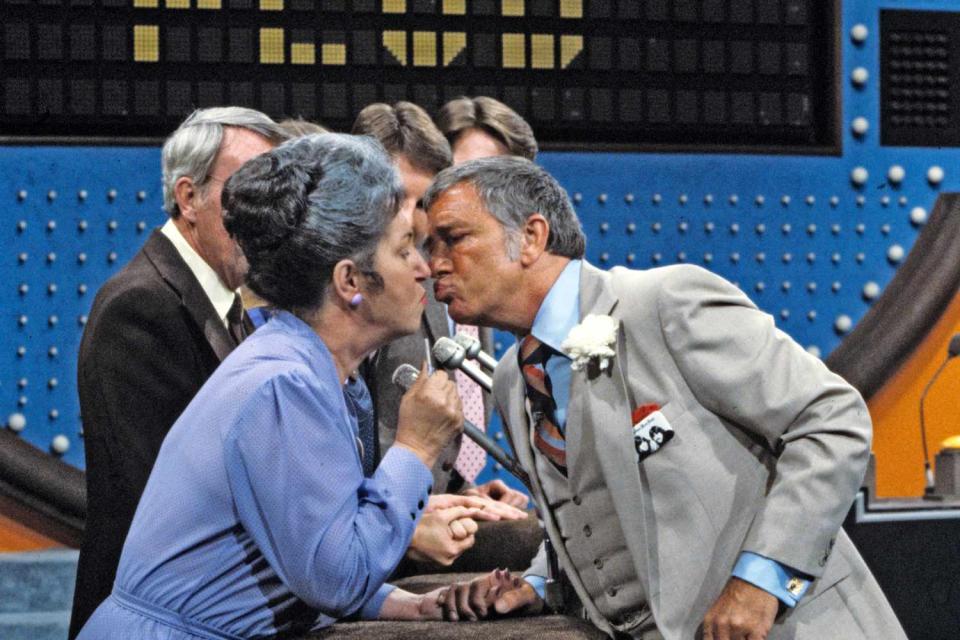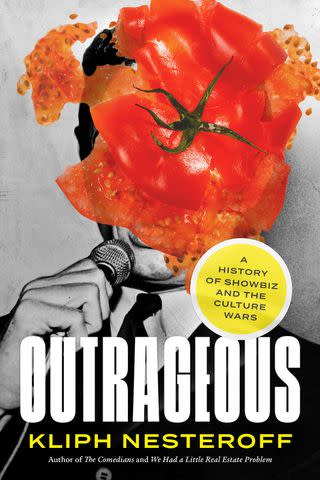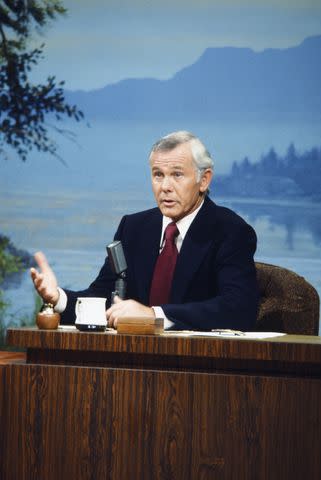“Outrageous” Book Claims “Family Feud” Contestants Had to Take Herpes Tests During Richard Dawson's Time Hosting
Writer Kliph Nesteroff examines censorship in entertainment in 'Outrageous: A History of Showbiz and the Culture Wars'

ABC Photo Archives/Disney General Entertainment Content via Getty
Contestants on Family Feud during Richard Dawson’s tenure as host had to undergo herpes tests on set, according to a new book.
In Outrageous: A History of Showbiz and the Culture Wars, writer Kliph Nesteroff reveals that the game show had to order herpes tests for contestants due to the late host's penchant for kissing female contestants on the mouth.
According to a report from the Pacific Daily News, the game show implemented a new policy, stating that both male and female contestants had to “undergo a mouth test with a magnifying glass from medical distaff.” Nesteroff writes of one contestant’s experience, during which a production assistant announced, “OK, everybody line up for your herpes tests,” after they entered a dressing room with the test supplies.
Related: Khloé Kardashian Won't Thread Her Eyebrows for Fear of Contracting Herpes

Bob D'Amico /American Broadcasting Companies via Gett
Richard Dawson and a contestant on "Family Feud" in 1980The testing started after viewers raised concerns about Family Feud, which Dawson originally hosted from 1976 to 1985. A letter published in the Philadelphia Daily News accused the show of “promiscuous kissing” and called the risk of diseases that could occur “too loathsome to recount.”
“When you watch clips of that era of Family Feud on YouTube and you see Richard Dawson kissing the ladies, a lot of the comments in the comment section will say things like, ‘Well, it was a different time. That's the way men were back then. It was a different time. People weren't so sensitive,’” Nesteroff tells PEOPLE. “And here, again, is evidence to the contrary that all kinds of people were complaining.”
PEOPLE has reached out to ABC, Fremantle Productions and Debmar-Mercury for comment.
Related: Steve Harvey Shares the Secret to a Viral 'Family Feud' Moment: 'Pure, Unintentional Ignorance'
Outrageous takes a look at censorship in entertainment from the Vaudeville era to the present day. Whether examining racism in 1800s theater or viewer outcry over the pregnancy storyline in I Love Lucy, Nesteroff shows that censorship — and the reasoning behind it — has long been part of the industry.

Abrams Books
"Outrageous" by Kliph NesteroffOne incident that surprised him was when Carol Burnett called for peace in the wake of the assassination of Dr. Martin Luther King Jr. by holding up a wristband during an appearance on The Merv Griffin Show — only to have CBS cut out her speech.
“She was concerned that people would think that she had said something that was much worse than that,” Nesteroff says. “If they bleeped her, [if] they deleted what she said, well, it must've been some horrible statement. Must've been some terrible vulgarism. But she was merely calling for world peace.”
Related: Carol Burnett's Life in Photos
Nesteroff says that there is a complaint for just about every TV show, from The Bionic Woman to Alf to Laverne & Shirley. One story he didn’t include in the book centered on The Tonight Show Starring Johnny Carson and the host’s Aunt Blabby character.
“A senior citizens rights group lodged a campaign and demanded that he stopped doing the character. They felt it was defamatory to the senior citizens and furthered stereotypes of seniors as feeble, stupid, and inept,” Nesteroff says.

NBC/NBCU Photo Bank
Johnny CarsonNesteroff, who is a former standup comic, says comedians don’t think in terms of whether something is “off limits” in their material.
“Standup comedy and funny people operate in a much more organic manner than I think people outside of comedy realize or understand,” he says. “Because, for people who aren't funny, in order to be funny, it seems like an enormous amount of labor and thought. Whereas when you're born with the knack of being funny, it's all pure instinct.”
Nesteroff does believe time has influenced how we perceive entertainment and censorship.
“The hysteria of today over whatever it might be will look just as ridiculous 40 years from now as the hysteria over Elvis [Presley] looks to us today, or the hysteria over the Beatles looks to us today, or the hysteria over The Simpsons looks like to us today,” Nesteroff says. “Because in those days, those people were very serious. So when people go crazy over whatever it is — drag queens or textbooks or whatever the grievance is about — I think it will look absolutely absurd in the future, which means it's absurd now.”
Never miss a story — sign up for PEOPLE's free daily newsletter to stay up-to-date on the best of what PEOPLE has to offer, from juicy celebrity news to compelling human interest stories.
Outrageous: A History of Showbiz and the Culture Wars is out now everywhere books are sold.
For more People news, make sure to sign up for our newsletter!
Read the original article on People.
